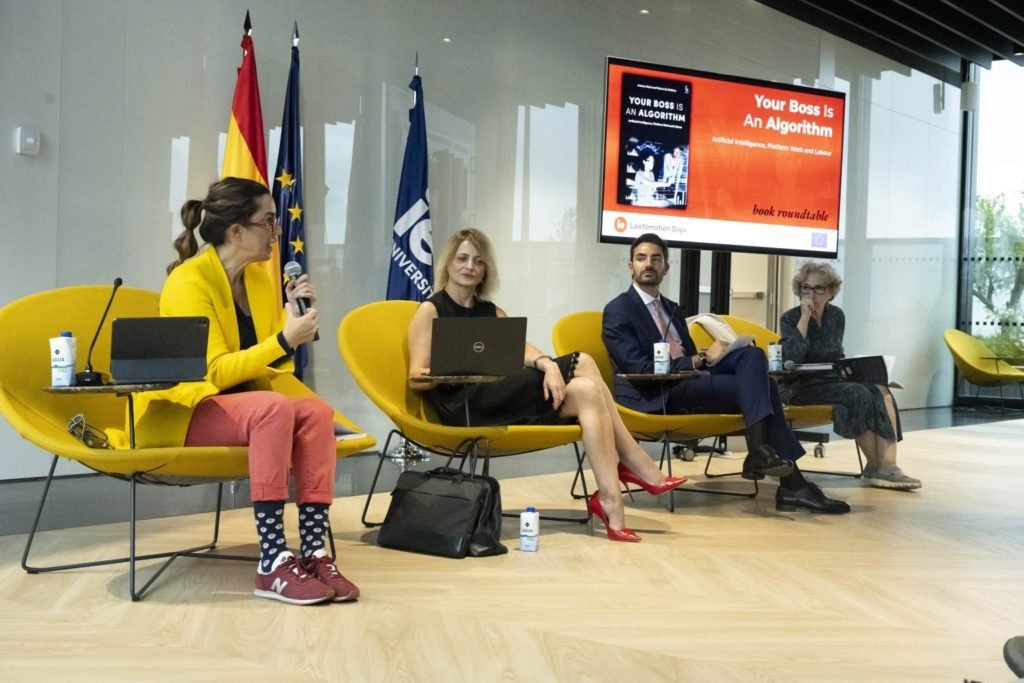IE Law School recently inaugurated the Jean Monnet Center of Excellence for Law and Automation through a multidisciplinary conference, held from September 29th to September 30th at the IE Tower. In attendance were students of the IE Law and Business schools; lecturers within the faculty who moderated the sessions, and external members of the legal field who spoke about respective aspects of law and automation.
The Jean Monnet Center of Excellence is co-financed by the European Commission, under the Erasmus+ programme. The IE Law School serves as a principal point of understanding and knowledge; while the center focuses on the impact of automation on law, promoting excellence in teaching as well as research. Lawtomation seeks to develop networks between legal experts and data scientists in an open conversation involving policymakers, civil servants, practitioners and the public.
Lecturers examined the relationship between law and automation; and the impact of algorithms and AI on constitutional principles, human rights, human resource management practices, and legal remedies. Inspiring speeches by keynote speakers were followed by sessions regarding private, public, and labor fields of law, along with law and technology.
On the first day of the conference, attendees were welcomed by Mr Cristian Nicolau, Head of Unit for E-Justice at the European Commission; along with Salvador Estevan, the Director-General for Digitalization and AI Spanish Government. Then, speakers in parallel sessions explored umbrella topics in Democracy, Human Rights and the Rule of Law. Speakers such as Ms Eleni Nerantzi from the European University Institute, posed the question of whether autonomous AI systems can commit crimes.
Right next door, Mr. Gentjan Skara of University College Bedër discussed Legal Tech, and E-Justice. He also debated whether the digitalization of the judicial system is an appropriate tool to increase judicial integrity, specifically in Albania. A roundtable discussion followed, revolving around, “Your Boss Is an Algorithm, Artificial Intelligence, Platform Work and Labor”.

The engaging deliberations continued the next day with the inquisitive debate of artificial intelligence and human rights. Meanwhile, the A.I. and Algorithmic Management session inquisitively looked at the link between labor and technology. They focused on perspectives regarding regulating artificial intelligence tools in the workplace, aimed to revolutionize the labor industry’s rules. Culminating the conference were discussions looking at the EU’s role in the shaping of algorithmic decision systems; as well as tort damage as a solution for A.I.-related harm in the workplace – probing whether it acts as a poison or an elixir. Also included in the final day’s agenda was a fireside chat segment.
As the conference came to an end in Madrid’s financial district, there was much to be reflected upon considering the present-day – governed by globalization and the automation of the legal sector. The argument of finding balance as a key question was proposed by Ikhlaq Sidhu, with the point of “automation and technology being beneficial but harmful to the labor market, taking away jobs.”
Concludably, it was agreed that the future of technology needs to be stipulated by the government, in order that automation does not have harsh effects on the labor market. Attendees left the conference knowing more about the impact of technology reforming legal structures. All through a range of multi-faceted discussions, presentations and chaired panels.







